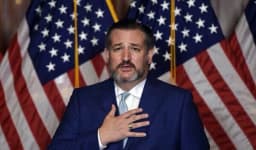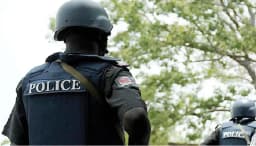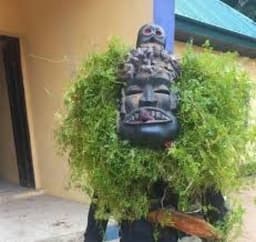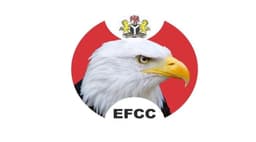
Bolaji Abdullahi, ADC National Publicity Secretary
As the African Democratic Congress (ADC) marks four months since its takeover by the opposition coalition, concerns have emerged over the party’s seeming lull and internal disputes. In this interview with Weekend Trust, Mallam Bolaji Abdullahi, the National Publicity Secretary of the party, dismisses claims of waning momentum, insisting that the party’s “quiet rebuilding” is more strategic than the defections making headlines. He speaks on the coalition’s structure, internal frictions, and why the ADC’s grassroots-focused renewal matters.
On November 3, the coalition takeover of the ADC will be four months old. Many say the initial momentum has slowed. Are you worried?
No, we don’t feel the momentum is going down. What happened at the inauguration was that Nigerians got to know there’s now an opposition coalition under the ADC. After that, the real work began. You don’t build a political party by staying in Abuja or appearing on TV.
If you look across the country today, the ADC is planting its roots nationwide. That’s the most important work, building structures at the grassroots. So, if it seems quiet, it’s because much of the work is happening below the radar, not in front of the cameras. Building a political party isn’t a press conference; it’s sustained fieldwork.
Recent reports indicate that about seven or eight state chapters of the ADC are currently in crisis. What’s responsible?
That’s not unusual. We’re creating a new kind of political party, and people are coming from different backgrounds. Differences are expected.
Seven out of 36 states plus the FCT, that’s not bad at all. There are issues, yes, but they’ll be resolved. That’s why party leadership exists. A political party is essentially a mechanism for aggregating and managing conflicting interests. So, it’s our responsibility to address such issues, and we’re not worried about them.
Some accuse the national leadership of trying to hijack the ADC structure. In Adamawa, for example, your statement was seen as taking sides with a faction.
That’s not true. What the national headquarters approved was an interim management committee to run the state. Remember, the party as we knew it is no longer the same. The ADC today is much bigger than it used to be.
In many states, there may be chairmen, but they don’t have full executive structures. People are talking about the ADC today because of the coalition. Naturally, the structure must be redefined to reflect the party’s new status, ambition, and size.
That doesn’t mean we’re throwing anyone out. There are clear guidelines to accommodate everyone. Those who’ve been in the party must learn to welcome newcomers, and the newcomers must also respect those who were already there.
In most states, these transitions are being managed efficiently. So, where there are issues, it’s not because of anything the national leadership did wrong; it’s simply because local actors haven’t managed their internal differences well.
Critics say the coalition’s entry into the ADC is causing more chaos than unity. What’s your reaction?
That’s not true. As I said earlier, we’re talking about seven states out of 37. In most states, there are no issues at all. Politics is naturally about conflict and compromise; what matters is leadership’s ability to manage those conflicts so they don’t get out of hand.
Our statement on Adamawa was conciliatory, and we’ll continue to take steps to deepen reconciliation wherever needed. But internal disagreements are part of politics; they’re not necessarily a crisis.
But some key coalition figures like Atiku Abubakar, Peter Obi, and Nasir El-Rufai have yet to formally obtain ADC membership cards despite repeated calls on them to formalise their membership. Why?
Because there are no new membership cards yet. The cards used before are invalid since the emergence of the new leadership. The valid cards are those signed by the new national chairman, Senator David Mark, and the secretary, Ogbeni Rauf Aregbesola.
As we speak, I don’t even have a new card myself, although I’m registered. The process of producing new cards is ongoing.
So, are you confirming that Atiku, Obi, and El-Rufai are registered members?
Yes, they are members of our party. In Peter Obi’s case, we granted a waiver because of the Anambra election that’s about to conclude. The same applies to Nasir El-Rufai due to the recent by-elections in Kaduna. As for Atiku Abubakar, he has resigned from the PDP. What else would that mean if not joining the ADC?
Some insist Atiku is still in limbo because he hasn’t formally collected a membership card.
Limbo where? He’s not joining the APC. The moment our new cards are ready, people like Atiku will formally pick them up.
When should Nigerians expect the new cards to be ready?
It’s a national party, not a small one. Producing cards that will reach every part of the country takes time, but the process is already underway.
Some say the personal ambitions of these major figures are already causing rifts or slowing down the coalition’s progress. Are you concerned?
Not at all. We don’t see any evidence of that. Unless you point to a specific example, I don’t think personal ambitions have caused any lethargy within the coalition.
Peter Obi has said he’ll run for president in 2027, and Atiku Abubakar also says he’s not stepping aside for anyone. How will the party manage these overlapping ambitions?
Nobody is stopping Obi from running. And nobody is asking Atiku to step down. We can’t just handpick a candidate; that would make us like the other parties. We’ve said from day one that our process will be transparent, open, and fair to all.
When the time comes to choose our presidential candidate, it will be through a democratic process that Nigerians can see for themselves. That’s why I said there’s no real conflict of ambition.
Critics worry that if some of these big names don’t get their way, they might walk away. Does the ADC have a fallback plan?
That’s a hypothetical question. We have no reason to believe that would happen.
The ADC still doesn’t have a sitting governor. Does that bother you?
Not at all. We’re a new party.
Are you talking to some governors or trying to woo disgruntled elements from other parties?
I’m not going to answer that question.
But would the ADC be willing to accept any governor who decides to join?
We’re having conversations, but I won’t go into details. Those governors joining the APC, do you think they’re doing so out of conviction? Many are driven by fear or self-interest.
So what alternative are you offering them?
We’re not stopping anyone from joining any party. People have the freedom to choose. What we’re saying is that we have a political party to build. If anyone has the courage of conviction to identify with us, they’ll be welcome.
You just acknowledged that while ADC is trying to build its structure, serving governors and lawmakers are moving to the ruling party. Is the ADC worried about this trend?
Not at all. Anyone who experienced 2015 would know there’s no reason to worry. Governors don’t necessarily decide how their states vote; many who served eight years lost senatorial elections. So, the idea that governors control everything is a myth.
Even the APC chairman recently admitted that some governors received unprecedented funds but delivered little. He urged citizens to demand performance, yet those are the same governors his party celebrates for joining. That contradiction shows such governors don’t necessarily add value. A governor who failed his people cannot dictate how they vote.
For us, the key task is convincing Nigerians that we represent a genuine alternative to the ruling party. Nigerians are increasingly disillusioned with the APC; our job is to prove we offer a credible option.
Critics say most ADC leaders, including you, were part of the APC and PDP until recently. How will you convince Nigerians that you represent a new political direction?
Unless you’re ready to manufacture new politicians, you won’t find anyone who hasn’t belonged to another party. Since 1999, it’s been the same political class operating in different formations. I’m not proud of that, but Nigerians must still play Nigerian politics; we can’t import foreigners.
What matters now is what we do differently going forward. That’s where the real change lies.
So, are you admitting the problem isn’t the parties but the players?
It’s both. A strong party should have the discipline to shape its members’ behaviour. The rampant defections and indiscipline you see stem from the structural weakness of our political parties.
In the Second Republic, parties stood for something and enforced it. Take the UPN, for instance: every governor, no matter how weak, implemented free education. That was the party’s core identity. When you voted UPN, you knew what you were voting for. The NPN, as a conservative party, focused on mass housing. Each had clear ideological boundaries.
The rot began in the Third Republic when presidents and governors became “leaders of the party,” eroding party supremacy. Now, we’re rebuilding differently in the ADC. As our chairman, David Mark, often says, the ADC won’t leave elected members to decide what to do with power. Before you even receive a nomination, you know the party’s policy positions.
We believe the party, not individuals, should define its mission. The system’s weakness has shaped the behaviour of politicians. Rebuilding strong, principled parties is the only solution.
Finally, what assurance can you give Nigerians who are sceptical about your coalition’s capacity to serve as a credible alternative in 2027?
The only assurance is that we cannot give up on our country. Nigerians should give us the benefit of the doubt. Yes, many of us have been in the APC or PDP, but we are now committed to doing politics differently.
Nigeria’s current problems are the direct result of the kind of politics we’ve played in the past. The only way forward is to change that politics. The burden of proof is on us, not Nigerians; we must convince them through our actions.
We have no other country, so we must build an alternative capable of rescuing it. If we can strengthen INEC to ensure real accountability, where voters can freely elect or punish politicians, we will have achieved more for democracy than in the past six decades.
The cynicism people express, that “they’re all the same”, comes from a weak electoral system. If Nigerians could truly punish non-performance at the polls, trust would naturally return. So, beyond asking citizens to trust us, Nigerians must also demand an electoral system that genuinely empowers them to decide who governs. (Weekend Trust)



























NEWS EXPRESS is Nigeria’s leading online newspaper. Published by Africa’s international award-winning journalist, Mr. Isaac Umunna, NEWS EXPRESS is Nigeria’s first truly professional online daily newspaper. It is published from Lagos, Nigeria’s economic and media hub, and has a provision for occasional special print editions. Thanks to our vast network of sources and dedicated team of professional journalists and contributors spread across Nigeria and overseas, NEWS EXPRESS has become synonymous with newsbreaks and exclusive stories from around the world.